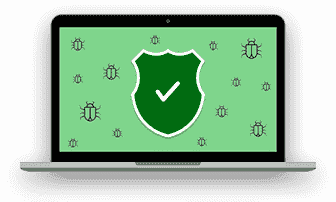Top Web Security Issues
Website security is the last thing that many companies will think about while they're on their website building process. Even if a website security expert is hired in their team, they'll always focus on how and when to put their websites live – leaving major vulnerabilities unattended.
How to Scan my Website for Security Issues?
You have to understand that an effective approach to website security must be proactive and defensive. This is a gentle reminder to you that website security must be taken seriously. It's good to be worried about the bad effects of it on your business and reputation.
Common Website Security Issues are:
- Injection Mistakes
- Cross Site Scripting (XSS)
- Not Updating Security Settings
- Exposing Sensitive Data
- A Lost Function Level Access Control
#1: Injection Mistakes
If you want a smooth filter of untrusted input, injections flaws must be avoided at all costs. An injection flaw can let you pass unfiltered data to the SQL server, to the browser, to the LDAP server (LDAP injection), or anywhere else. These website layers can be used by a hacker to inject commands. This can result in loss of data and hacking your own website. In fact, it can also infect other websites as well.
#2: Cross Site Scripting (XSS)
This is another form injection vulnerability that can input sanitization failure. A hacker sets up your web application JavaScript tags on input. When this input is returned to the user unsanitized, the user’s browser will carry it out. It can be as simple as crafting a link and persuading a user to click it, or it can be something much more sinister. On page load the script runs and, for example, can be used to post your cookies to the hacker.

#3: Not Updating Security Settings
Any responsible website security personnel will always make sure to personalize your security settings such as passwords and authentications. Perhaps, some people are still human to miss important things in their jobs. Some concrete scenarios are:
- They let the application run with debug enabled in production.
- They didn't change default keys and passwords.
- They left the directory listing enabled on the server, which leaks valuable information.
- They allow unnecessary services running on the machine.
- They operated an outdated software (think WordPress plugins, old PhpMyAdmin).
- They didn't fix some pop-up messages on error information.
#4: Exposing Sensitive Data
It's a huge failure for a website security personnel – to not encrypt and not protect your sensitive data. Information (such as credit card details) and user passwords should never travel or be stored unencrypted, and passwords should always be hashed. And while it goes without saying that session IDs and sensitive data should not be traveling in the URLs. Moreover, sensitive cookies should have the secure flag on, this is very important and cannot be over-emphasized.
#5: A Lost Function Level Access Control
An authorization failure can also disrupt your website. It means that when a function is called on the server, proper authorization was not performed. A lot of times, website developers rely on the fact that the server side generated the UI. They think that the functionality that is not supplied by the server cannot be accessed by the client. It is not as easy as they thought, as a hacker can always fake requests to the “hidden” functionality and will not be prevented by the fact that the UI doesn’t make this functionality easily accessible. Nothing can stop an attacker from discovering this functionality and abusing it if authorization is missing.
It is important to always keep in mind that the 5 security issue with websites mentioned above are just a few to mention. There are a lot more website security issues that website security personnel deals with as technology develops and changes.
cWatch on Strengthening Website Security
On the vast sea of website security tools, cWatch offers the most efficient features for businesses. It has many other features that help keep your website stronger than any concrete wall. It is the website security check tool that combines a Web Application Firewall (WAF) provisioned over a Secure Content Delivery Network (CDN). It is a fully capable website security check tool from around-the-clock staffed Cyber Security Operation Center (CSOC) of certified security analysts and is powered by a Security Information and Event Management (SIEM) that leverages data from over 85 million endpoints to detect and mitigate threats before they occur.
On top of all the benefits from cWatch website security, you'll get the initial Scan test for free! No need for credit cards. We created a plan that suits any interested online entrepreneurs to increase their website security as a service. The Comodo cWatch Web contains unique sophisticated web security as a service feature that is not available in other web security as a website security tool.






